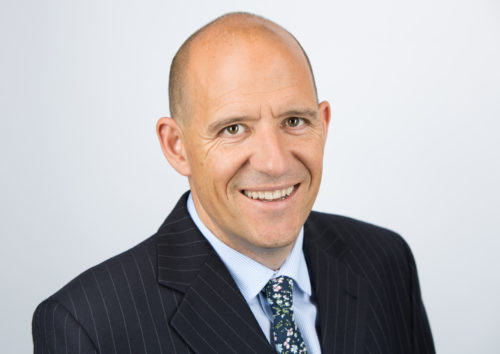Good paraplanners grow into the role through hard graft, experience and an ability to see the bigger picture. That can’t be fast tracked, paraplanner Matt Harrison, tells PP editor Rob Kingsbury
The imbalance in the demand for skilled and qualified paraplanners and the number of paraplanners in the market on the supply side is intense and increasing as growing numbers of financial advisers recognise the value that paraplanners can bring to their businesses.
This has seen a number of initiatives launched in the market as it looks for ways to fill the gap, including fast-track schemes to help budding paraplanners obtain the qualifications and enough day-to-day experience to start paraplanning.
But fast tracking people into paraplanner roles may not be the answer to the situation that everyone hopes, thinks paraplanner Matt Harrison. He believes good paraplanners are developed through hard graft and experience and an ability to see the bigger picture.
“You can’t just take exams and become a paraplanner, that simply isn’t possible. Paraplanning is more of an art than a science, which means you have to know not just the hard facts but also all the nuances and the details of how a good financial plan is constructed.
“If you go straight into being a paraplanner without having put in the time you don’t understand the whole jigsaw and how it fits together. Once you put the jigsaw together, of which there are many pieces, then you can help clients go on their financial journey. Get it wrong and that could be a problem not just for you but for the company you work for x-many years down the line. Get it right and you can build a long-term financial journey for the client and for you and the security of the business.”
Matt’s views come out of his own experiences and what he has learned over his many years in the industry.
Matt left school after his A-Levels in 1987 with, he admits, “no direction in mind” and as often happens, fell into financial services randomly by taking the first job that interested him. This was as an administrator with an insurance broker that also had a financial services arm.
“I was working for three directors who were the financial advisers and between them had 120 years of experience of working in financial services.” They encouraged him to take the newly launched Financial Planning Certificates 1,2 and 3, and he went on to take the Advanced Financial Planning Certificates, “with a real desire to become an IFA.”
Once authorised, he started work as a mortgage adviser. “I was thrown in the deep end working on my own in an estate agent.” Not long afterwards, two BDMs who had set up their own IFA practice approached him to join their new company as an IFA.
Matt says he enjoyed the technical elements and the client relationship building of the adviser role but as the business moved into the new century, times got tougher and pressure was being put on him to aggressively sell products, Matt took a long look at what he really wanted to do and decided it wasn’t financial advice. “I realised that although I was very good at the technical side and the client relationship side of financial advice, I wasn’t the go-getting salesman that was required.”
This saw him leave financial advice in 2002 and look for roles that required technical competence rather than sales skills. For a while he worked in the credit card fraud team at the UK’s first internet bank, Egg (owned by Prudential), and he was working in a financial services compliance department when, in 2007, he was approached by a growing IFA firm looking for someone to fill a paraplanner role. This proved to be the perfect job for him, making use of his 20 years of knowledge and his technical skills. “I realised that paraplanning was where I wanted to be and I’ve not looked back since,” Matt says.
One reason for that, he adds, is that he began working for one particular IFA. They hit it off professionally and they have been working together ever since.
Changing industry
What Matt says he has enjoyed most during his time in the industry is seeing the change from product sales and commission-based advice to holistic financial planning.
At the same time, it is his longevity in the market, and in particular his decade-long working relationship with his adviser, that provide job satisfaction, Matt says.
“Having been in the role for nearly a decade, there’s a lot of satisfaction in seeing longstanding clients where our hard work over the years has helped grow their investment portfolios to the point where they can think about retiring. It’s also interesting to have been on the accumulation journey with them and now to be looking at helping them in the decumulation phase, and seeing them enjoy their retirement.
“In fact, one of the clients we have was my first ever client back in the 1980s who I advised to stop paying rent to a landlord and to buy his business premises. He has recently retired and there is a satisfaction in seeing him through that quarter century or more road trip to where he is now.”
Maintaining the adviser relationship
Fundamentally, the biggest challenge a paraplanner has to face is probably their ability to connect and work with their financial adviser. The big question is how to maintain a good working relationship with an adviser, as Matt has done, for close to a decade.
“It’s down to our personalities. I’m an analytical person while my adviser is more outward going and go getting, which is what she needs to be as an adviser. But that is a good combination.
““You have to believe in and trust the adviser and also gel with them to the extent that you can discuss advice solutions and challenge them where necessary. It’s the ability to have constructive disagreements and know each other well enough to come out from it with a positive outcome for the client; that makes it a good and healthy working relationship.”
Taking exams and gaining qualifications is one way forward but it is this kind of interaction and relationship that cannot be taught, it is built up over time, Matt says.
“To me, a fundamental part of what a paraplanner is there to do is to act as a sounding board for the adviser and to challenge them when needed. That’s what achieves the right conclusion for the client.
“When you’re first starting off in the industry you haven’t got the confidence the skill set, experience or the knowledge to challenge an adviser. You need to be able to do that if you are going to be a good paraplanner.”
How to gain experience
So what can budding paraplanners do help them get the experience?
“To my mind, you get that experience by working in every area and seeing the details that are needed to get the job done well. Simple things like a letter of authority, for example; what information are you looking for, why are you asking for it and what might be missing when it comes in.
“It’s this kind of attention to detail that comes from doing the job day-to-day that builds and hones your skills as a paraplanner. It’s much better to be able to look at what the client/provider has sent in and go back to them straight away to say there is something missing than to do it when you are half way through the report, which results in everything being delayed at a potentially crucial point in the process.”
This ability to understand the detail underlies Matt’s belief that there is no short cut to being a good paraplanner. “I think you need to study hard and do the exams. I then think you need to work in every area of the business, so you are getting that rounded experience; working with different paraplanners and advisers in the business too. Also, if you can, attend some client meetings to see what happens in them and how clients are describing what they want, rather than what comes out on a fact find from the adviser. That way you are getting the full flavour of every element of the financial services journey.
“Exams are important if you want to be paraplanner but experience is key,” he stresses.
To that extent, an apprenticeship scheme seems a far more valuable a route into paraplanning than a fast-track graduate scheme Matt believes.
“I believe in the details and the principles and integrity of paraplanning and as much as I recognise and praise people for their ambition, more often than not you learn from your mistakes and it’s better that happens when you’re learning the job and it can be spotted and rectified than when you’re dealing with someone’s life savings.”
What’s a typical day for Matt?
“I’ll get in at 8am and check and update my emails. I’ll look at how I’m going to manage my workload, not just for the day but the week and the month ahead.
We set ourselves objectives at the start of each month of what we want to achieve in terms of the reports coming up, priority cases, not just on a monetary basis.
I’ll spend time in client meetings, more often doing cash flow model presentations, which I enjoy, and I also do a lot of customer service work with client contact, which is key when my adviser is out of the office. It’s not giving advice, as I’m not CF30, although it is something I am considering.
Where we need them we’ll have daily or weekly meeting to discuss cases and then it’s down to me to get on with the job, the coalface work, the report writing, admin when necessary, and the general paraplanning duties you’d expect in a busy office.”






























